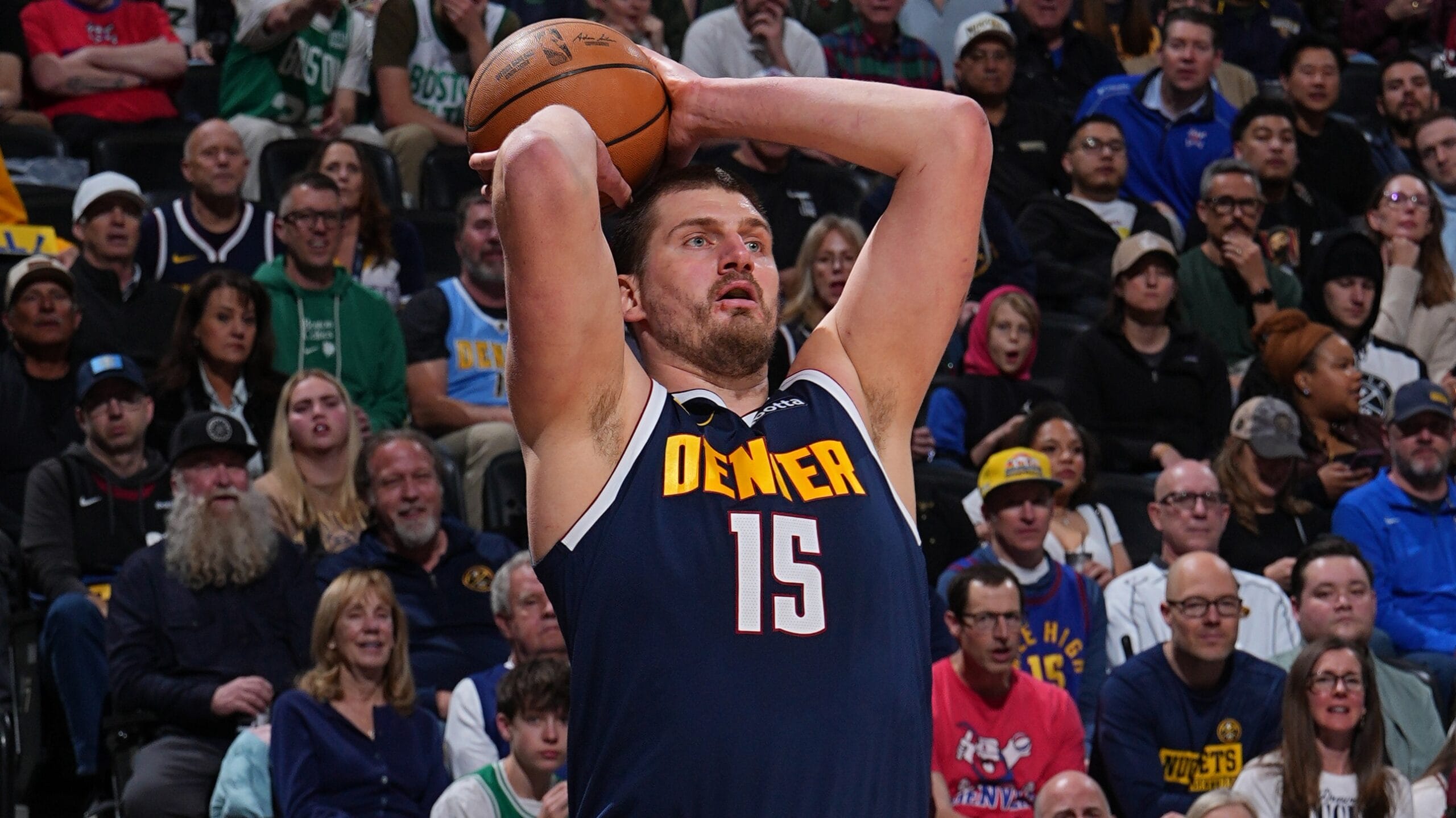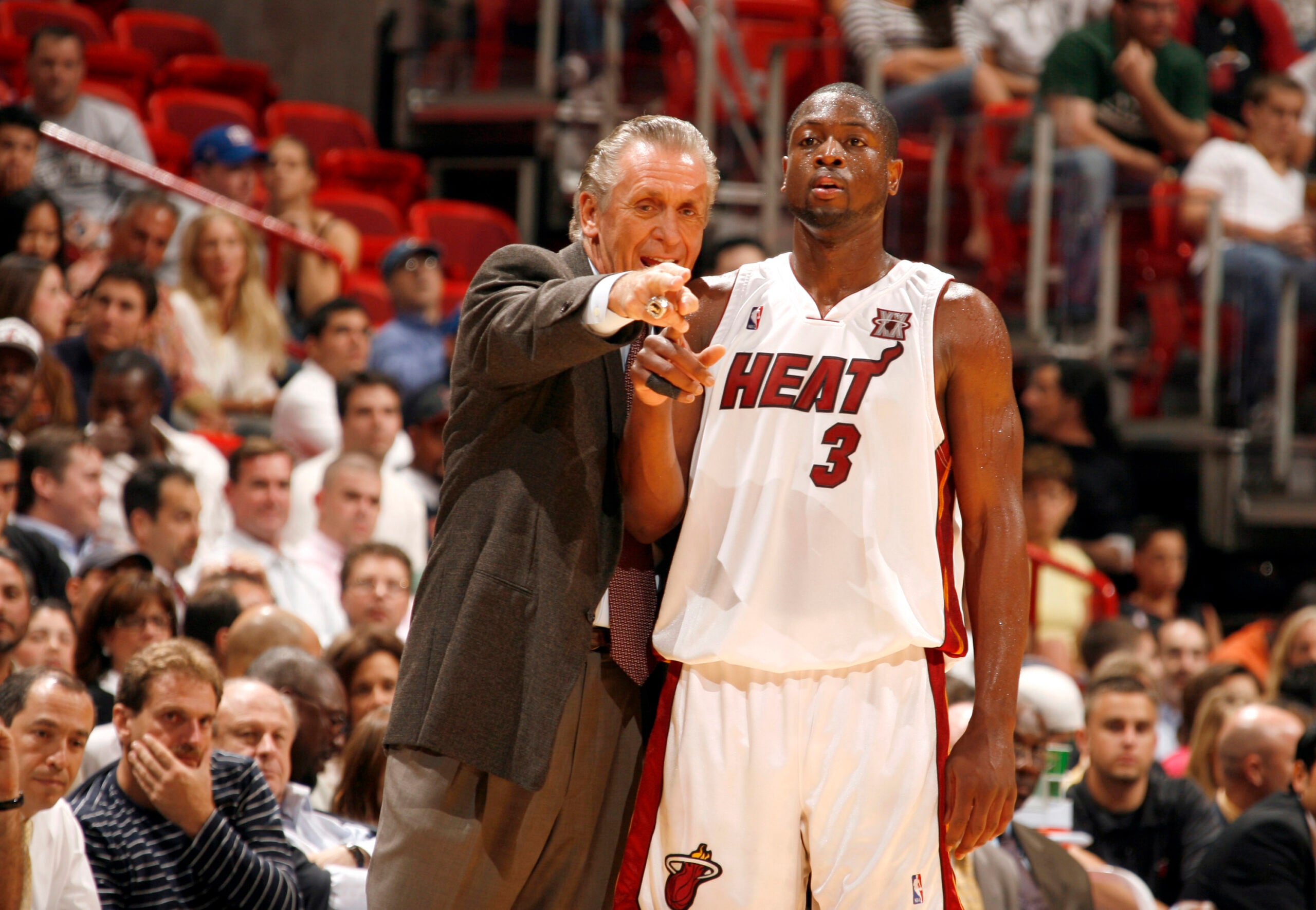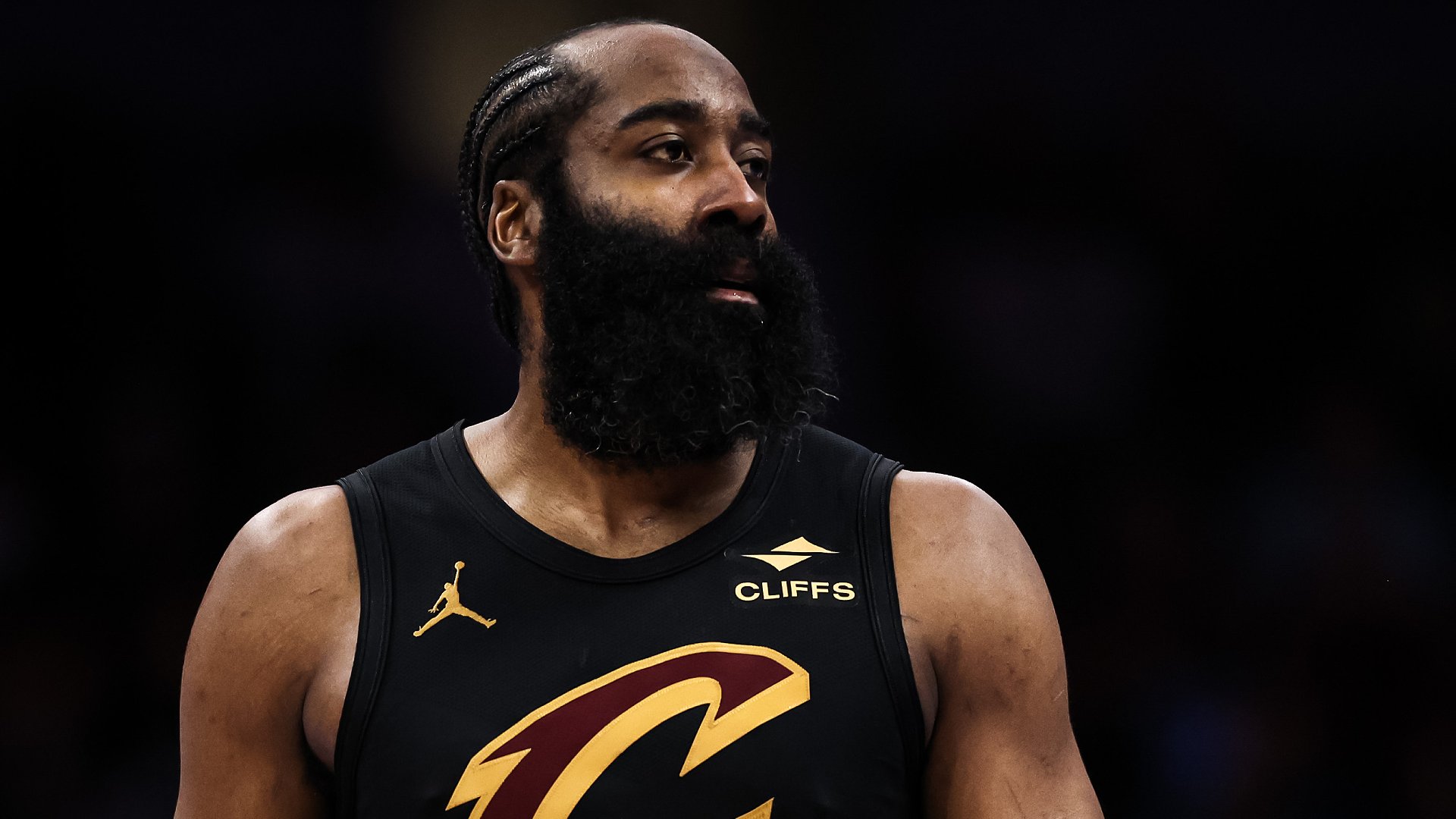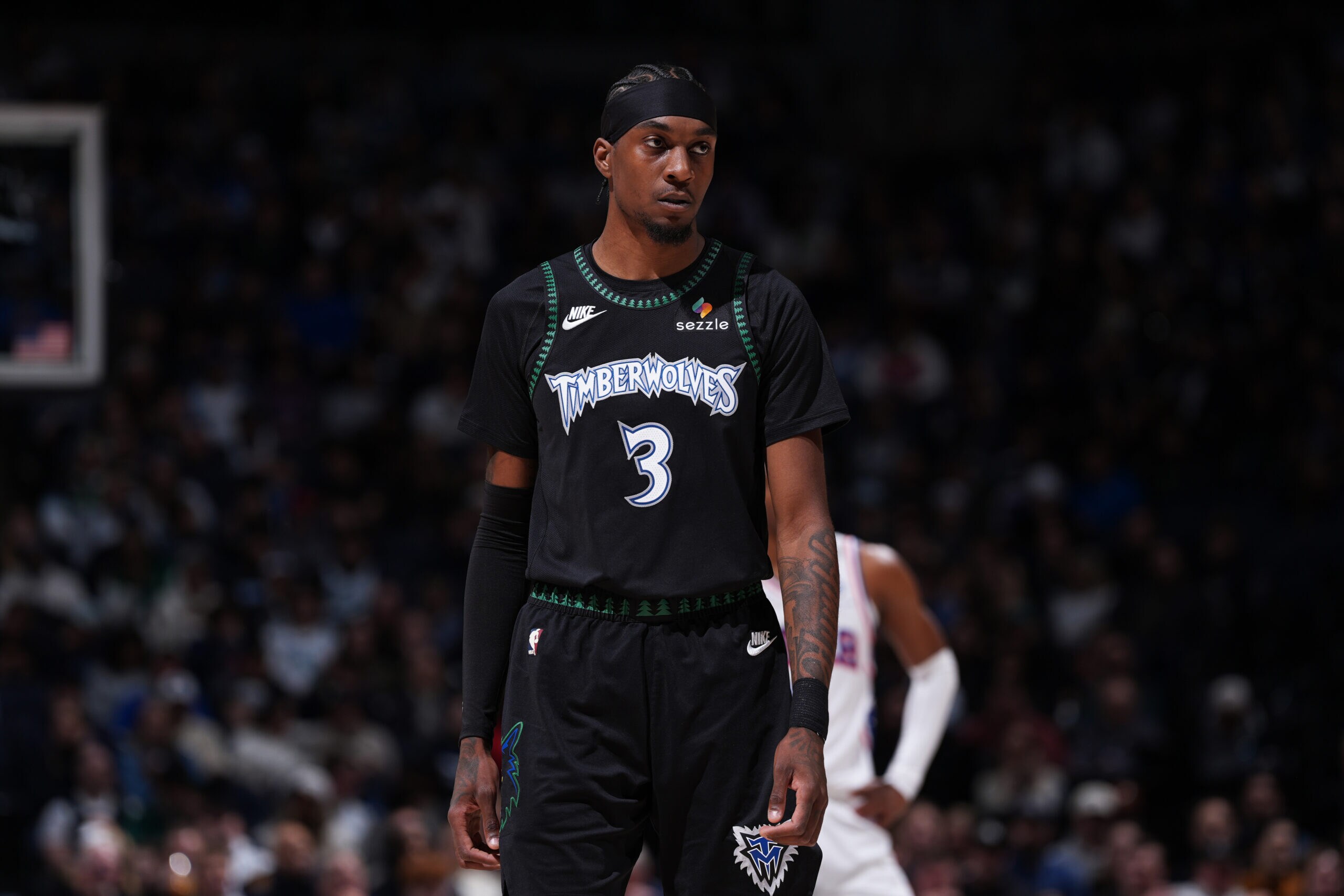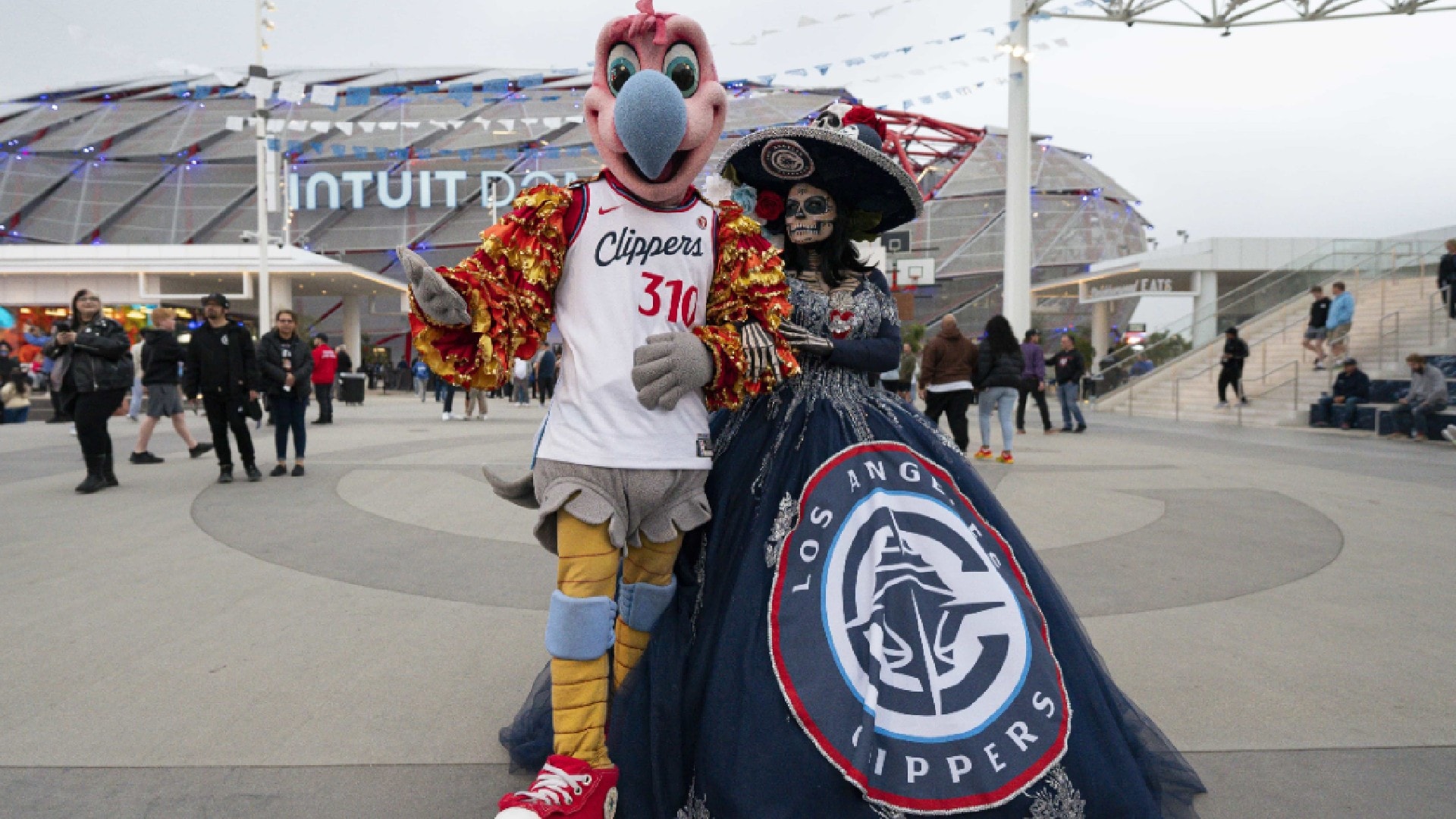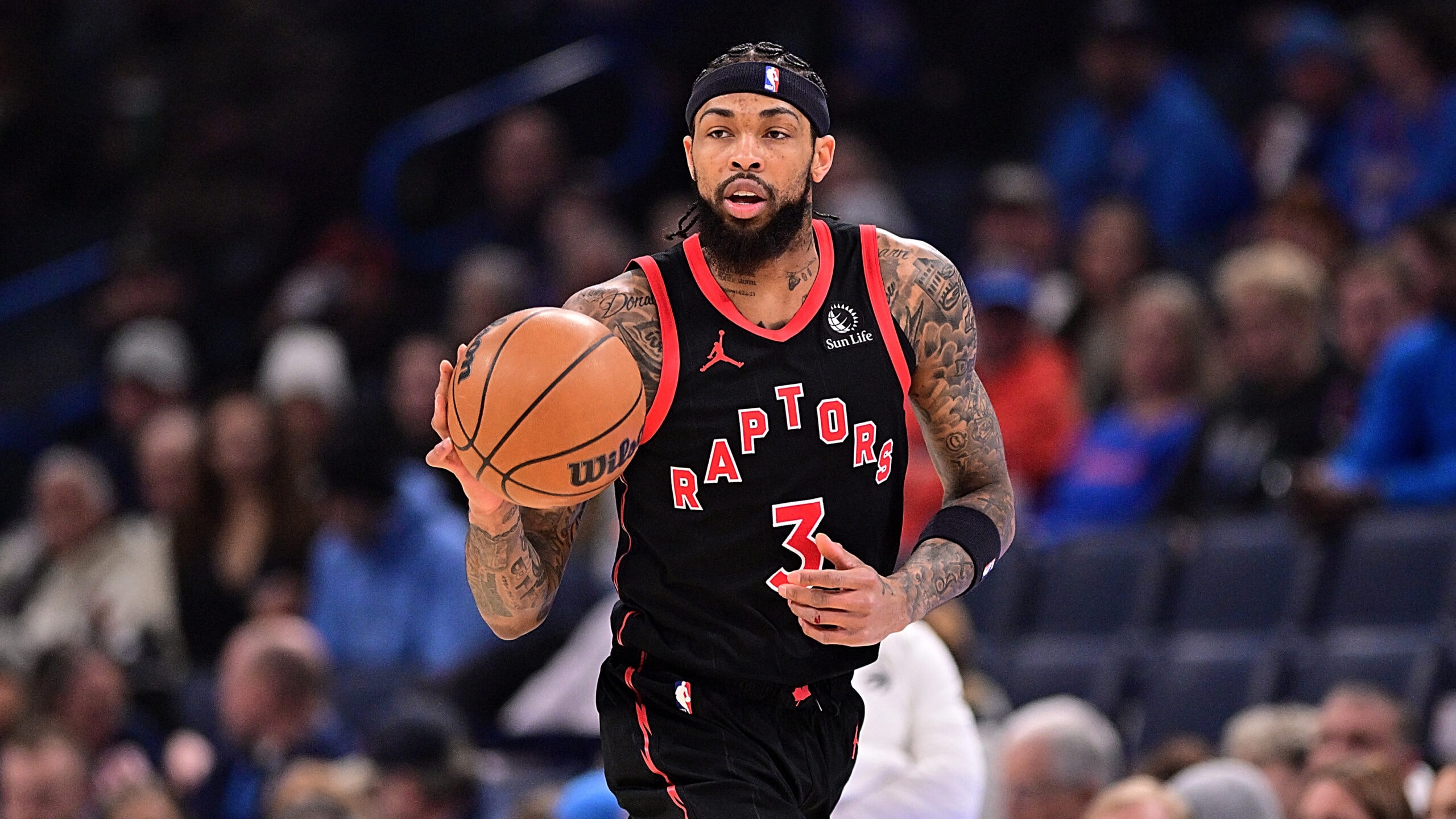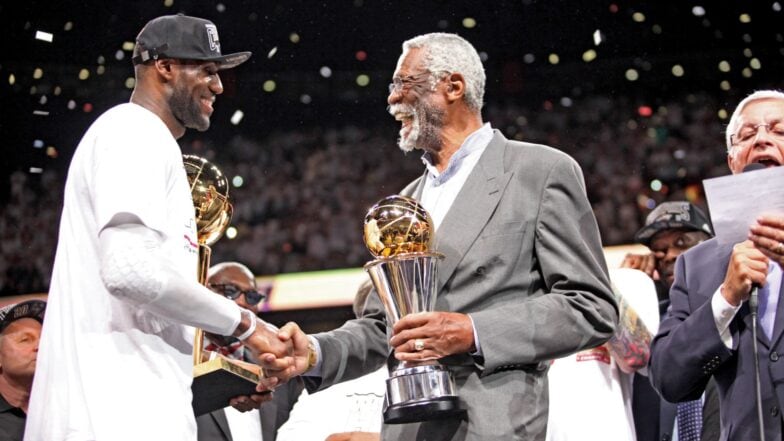
LeBron James shares a moment with Bill Russell after leading the Heat to the 2013 NBA title, earning Finals MVP and the Kia MVP in the same season.
Winning the Kia NBA Most Valuable Player award is an elite distinction. So is capturing the Bill Russell NBA Finals MVP. But doing both in the same season? That’s a rare feat reserved for the game’s all-time greats. This list looks back at the select group of players who have dominated from opening night through the season’s final buzzer, earning both MVP honors in the same unforgettable campaign.
Shai Gilgeous-Alexander (2025)
SGA turned in his finest regular season to date, pushing three-time Kia MVP Nikola Jokić to the wire in a season-long game of “Can You Top This?” Gilgeous-Alexander earned his third straight All-NBA First Team honors and led the league in scoring at 32.7 points per game, while ranking top-5 in steals for a third straight season (this time: 5th, 1.7 spg). In the seven-game season finale vs. Indiana, SGA posted 30.3 ppg, 4.6 rpg, 5.6 apg, 1.9 spg and 1.7 bpg while shooting 44.3% from the field and 90.4% on 10.0 free-throw attempts per game.
LeBron James, Miami Heat (2013)
LeBron James elevated his game in the 2012-13 season, averaging 26.8 points on a blistering 56.5% from the field, along with 8.0 rebounds, 7.3 assists, 1.7 steals and 0.9 blocks across 76 regular season games. He led the league in field goals made (10.1) for the fourth straight year and topped 40% from three for the first time in his 10-year career. James powered the Heat to back-to-back championships and earned his second straight Finals MVP, putting up 25.3 points, 10.9 rebounds, 7.0 assists, 2.3 steals and 0.9 blocks per game in a seven-game classic against the Spurs.
LeBron James, Miami Heat (2012)
LeBron became just the third player in NBA history to win MVP and Finals MVP in the same year more than once, joining Michael Jordan and Larry Bird. His first time doing so came in his second season with Miami in 2011-12, when he averaged 27.1 points on 53.1% shooting, along with 7.9 rebounds, 6.2 assists, and 1.9 steals in a lockout-shortened 62-game season. In five Finals games against the Thunder, James posted 28.6 points, 10.2 rebounds, 7.4 assists, and 1.6 steals en route to his first NBA championship and Finals MVP.
Tim Duncan, San Antonio Spurs (2003)
‘The Big Fundamental’ earned back-to-back MVPs in 2002 and 2003 and capped off his second with a dominant playoff run. Duncan averaged 23.3 points, 12.9 rebounds, 3.9 assists, and 2.9 blocks in 81 games that season. In the Finals, he elevated his game even further, averaging 24.2 points, 17.0 rebounds, 5.3 assists, 1.0 steal and 5.3 blocks over six games in a 4–2 win over the New Jersey Nets.
Shaquille O’Neal, Los Angeles Lakers (2000)
The generational No. 1 overall pick of the 1992 NBA Draft reached his full potential in the 1999-2000 season, leading the league in scoring for a second time with 29.7 points per game en route to his first NBA MVP award. He also helped the Lakers reach their ceiling after initially arriving to L.A. via free agency four years earlier. O’Neal led the purple-and-gold to their first championship since 1988 with a 4-2 Finals win over Indiana, averaging an absurd 38 points, 16.7 rebounds and 2.7 blocks in the championship series.
Michael Jordan, Chicago Bulls (1998)
At age 34, Jordan played all 82 games for the eighth time in 12 seasons, averaging 28.7 points, 5.8 rebounds, 3.5 assists, and 1.7 steals. He led the league in scoring for the 10th and final time and earned his fifth MVP. Jordan sealed the Bulls’ second three-peat with a memorable Game 6 performance in the Finals, hitting the title-clinching shot over Bryon Russell and averaging 33.5 points and 1.8 steals in 41.7 minutes per game.
Michael Jordan, Chicago Bulls (1996)
The only player to win both MVP and Finals MVP more than twice in the same season, Jordan’s third such campaign came in 1995-96. That year, he led the league in scoring (30.4), field goals made (11.2) and attempted (22.6) and shot a career-best 42.7% from three. In the Finals, MJ averaged 27.3 points, 5.3 rebounds, 4.2 assists and 1.7 steals in six games as Chicago beat Seattle for its fourth title in six years.
Hakeem Olajuwon, Houston Rockets (1994)
Olajuwon powered the Rockets to back-to-back titles in 1994 and 1995 and remains the NBA’s all-time leader in playoff blocks per game (3.3). He won MVP in ’94 by averaging 27.3 points, 11.9 rebounds, 3.6 assists, 1.6 steals, and 3.7 blocks across 80 games. In the Finals vs. New York, Olajuwon put up 26.9 points, 9.1 rebounds, 3.6 assists, 1.6 steals and 3.9 blocks on 50/100/86 shooting splits across seven games.
Michael Jordan, Chicago Bulls (1992)
Jordan followed up his ’91 title with another dominant campaign, leading the league in scoring (30.1), field goals made (11.8), and attempted (22.7). He added 6.4 rebounds, 6.1 assists, and 2.3 steals in 80 games. In the Finals vs. Portland, Jordan averaged 35.8 points, 6.4 assists and 1.7 steals over six games, earning his second straight Finals MVP and securing Chicago’s second title.
Michael Jordan, Chicago Bulls (1991)
In his age-27 season, Jordan won his second regular season MVP with 31.5 points, 6.0 rebounds, 5.5 assists, 2.7 steals, and 1.0 blocks while playing all 82 games. He led the league in scoring for the fifth straight year, then captured his first NBA title and Finals MVP. Against the Lakers, Jordan averaged 31.2 points, 6.6 rebounds, 11.4 assists, 2.8 steals and 1.4 blocks over five games.
Magic Johnson, Los Angeles Lakers (1987)
Magic had already won Finals MVP as a rookie and had four straight top-3 MVP finishes before finally claiming the regular season award in 1987. He averaged 23.9 points and led the league in assists, then helped the Lakers defeat the Celtics in six games. Johnson earned his third Finals MVP with averages of 26.2 points, 8.0 rebounds and 13.0 assists.
Larry Bird, Boston Celtics (1986)
For the second time in three years, Bird was the best on both stages. The Celtics superstar nearly averaged a triple-double in the Finals (24.0 ppg, 9.6 rpg, 9.5 apg), including 29-11-12 in the clinching Game 6 over twin towers Ralph Sampson and Hakeem Olajuwon of the Houston Rockets. Bird was just as potent in the regular season, putting up 25.8 points, 9.8 rebounds and 6.8 assists for the most dominant home team in NBA history (40-1 regular season, 10-0 postseason).
Larry Bird, Boston Celtics (1984)
Although already a champion, Bird put his own undeniable superstar stamp on a thrilling seven-game ’84 Finals against his personal and team rival: Magic Johnson and the Los Angeles Lakers. Bird netted double-doubles in six of the seven games, including a 29-point, 21-rebound effort in a Game 4 overtime classic. Bird’s second title — and first Finals MVP — came on the heels of winning league MVP honors with 24.2 points, 10.1 rebounds, 6.6 assists and 1.6 steals per game.
Moses Malone, Philadelphia 76ers (1983)
After winning MVP with the Rockets in 1982, Malone was traded to Philadelphia, where he delivered instantly. He won his second straight MVP with 24.5 points and a league-high 15.3 rebounds. In the playoffs, he carried the Sixers to their first title in nearly 20 years, dominating the Lakers in the Finals with 25.8 points and 18.0 rebounds per game.
Kareem Abdul-Jabbar, Milwaukee Bucks (1971)
In just his second NBA season, Kareem (then Lew Alcindor) averaged 31.7 points and 16.0 rebounds to win his first MVP. He led the Bucks through the playoffs and into the Finals, where they swept the Baltimore Bullets. Kareem averaged 27.0 points and 18.5 rebounds over those four games to earn Finals MVP honors.
Willis Reed, New York Knicks (1970)
Reed became the first player to win MVP and Finals MVP in the same season. He averaged 21.7 points and 13.9 rebounds in the regular season, and 23.7 and 13.8 in the playoffs. Reed’s iconic moment came in Game 7 of the Finals, when he returned from a thigh injury to start and inspire the Knicks to their first championship.




